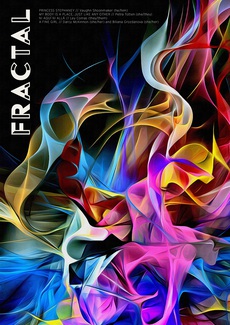 Try these videos to get started.
Try these videos to get started.
Want more on finding media? Try Articles & Media.
-
Fractal : Stories Across the Gender Spectrum (1:18:00)
Fractal: Stories Across the Gender Spectrum is a collection of 4 Transgender and Gender Queer Documentary Shorts that explores the wide spectrum of experiences often left out of the traditional narrative. From a successful trans woman running her own salon in New Orleans to a collective experimental video essay road film; the collection expands on the joys, struggles and honest conversations within the community. A Fine Girl Directed by: Darcy McKinnon (she/her) and Biliana Grozdanova (she/her) A FINE GIRL follows Brandi Jarrow, a 27-year old trans woman of color from New Orleans, as she takes the personal and professional success she has achieved as a hairstylist, and works to open an inclusive luxury salon. The film is a joyful, optimistic portrait of what's possible when we include and uplift trans people as essential contributors to our community. Official Selection at IF/Then Shorts 2019 New Orleans Film Festival My Body is a Place Just Like Any Other Directed by: Petra Totten (she/they) Making her way across the deserts of North America in search of a place she can find herself reflected, Carrie muses on her identity through memories, stories, and conversations with people in the trans* community to uncover what it means to have an embodied experience in the world. Official Selection at TRANSlations Transgender Film Festival 2022 Ni Aqui Ni Alla Directed by: Ley Comas (they/them) Growing up in the Dominican Republic, filmmaker Ley Comas had a negative understanding of their trans identity. Years later, they attempt to share their truth with their religious family. Official Selection at 2021 OutFest Princess Stephaney Directed by: Vaughn Shoonmaker (he/him) When the world shuts down to fight the COVID-19 pandemic, New Orleans' premier drag queen is left without a bar to tend and no one to entertain. With nothing but time on her hands and unpaid bills pilling up, Princess Stephaney reckons with her age, her solitude and an uncertain future for her life in the Crescent City.
-
Gender Fluidity (42:00)
Lisa Ling explores the revolution going on in how we think about genders. She meets individuals across the spectrum who are seeking acceptance from those closest to them.
-
Gender Inequality (10:21)
RealChange director Sadhana Smiles talks about how gender equality at the highest levels benefits companies, how they can achieve this balance, and how women can push for higher positions.
-
The Gender Puzzle (46:00)
Description
Science is identifying new biological processes that determine a person’s sex. How will these findings affect the transgender and transsexual community? This program explores the latest research into gender development and the medical, cultural, and legal issues at the heart of the “brain sex” school of thought. Showing how human genome research has shifted scientific focus away from chromosomes, the video examines the role of brain receptors and the discovery of the SRY protein, which establishes maleness. Interviews featuring people with intersex and transsexual experiences shed light on how gender identity emerges, and how it figured into one man’s legal battle for the right to marry.
-
Gender War/Gender Peace (29:35)
Description
This program focuses on the communication problems that prevent us from understanding the opposite gender. In addition to dynamic presentations of research, the video features interviews with gender communication authors Aaron Kipnis and Elizabeth Heron, as well as college students sharing their frustrations. Highly recommended for introductory courses in communication and gender studies.
-
National Geographic: Gender Revolution - A Journey with Katie Couric (1:32:28)
Gender and sexuality can be fluid, and today transgender issues are altering the nature of day-to-day interactions. What do you do when your seven-year-old son announces that he wants to be a girl? Or your husband of 30 years announces that he wants to be a woman? Broadcasting legend Katie Couric (former co-host of NBC’s Today, CBS Evening News anchor and 60 Minutes correspondent) takes us on a unique journey to discover the dynamics and complexities of gender in our world. To better understand this complicated social and scientific issue, Couric crisscrossed the U.S. to talk with scientists, psychologists, surgeons, activists, authors and families to learn more about the role of genetics, brain chemistry and modern culture on gender fluidity. She also speaks with a number of ordinary people who find their bodies and their lives on the front line of a rapidly changing world. Examining the role of politics and culture on gender and with conversations that range from the scientifically enlightening to the deeply personal, Couric’s unflinching search for truth sheds light on countless untold stories of struggle, understanding, ignorance, hurt and love.
-
Should We Address the Gender Wage Gap?: A Debate (55:23)
According to the U.S. Department of Labor, American women are paid 84 cents on average, for every dollar men make. This wage gap has persisted despite near-record rates of women's participation in the labor market, with wage gaps even larger for women in minority populations, and experts estimate that pay parity will not be achieved until 2052. Should policy interventions address these disparities, or is it more important to recognize and honor women's personal decisions and find another way to look at the gap?
Supporters of addressing the gender wage gap see it as a point of fairness and equity that would bring economic benefits, they argue, such as higher family incomes and greater productivity. New laws and policies, they contend, are needed to dismantle systemic barriers that prevent women from earning more. Opponents of addressing the gender wage gap argue that such disparities reflect individual choices regarding career paths, work-life balance, and tenure, rather than systemic discrimination. They also contend that when adjusted for factors like job type, hours worked, and taking breaks in one's career, the gap significantly narrows. Should we address the gender wage gap?
![]() Try these videos to get started.
Try these videos to get started.





